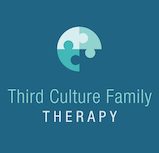Millions of young adults leave home every year for tertiary education or to begin work. As a defining moment, this is as significant for parents as it is for our children. As parents, we sense that our parent-child relationship is unique. It is. By definition it’s asymmetrical. No other relationship is like it. Whilst our children are gifts, they come with parental obligations. The parental role of authority figure, protector and carer, has moved us away from our self-centred private selves. We have a responsibility to someone other than ourselves and this isn’t a responsibility that can be declined. We choose a relationship with a partner, just as we can choose to move away from that partner. The same goes for friends. We choose them, and we may grow apart and find new ones. However, this natural process of parting with our children is also a peculiar experience of separation, because this is one of the only times in life where we do not have a choice.
When we raise our children it’s all about preparing them to tackle life. Although there may be cultural differences in the way it’s managed, this is a universal law of nature. What makes it so tough despite knowing that it’s a natural process is the reality that we don’t have a choice. Participation isn’t optional! It’s also the feeling of being deselected by our kids. We’re no longer the centre of their lives. We feel left behind as our children begin the next phase in life’s journey. We’ve been preparing them for this moment their entire lives. It’s freedom from their perspective and yet what we feel in the moment is emptiness, loneliness and heartbreak. Isn’t it ironic that in this moment of success, when we’ve arrived at a point where they feel confident and ready to be without us, we feel anything but triumphant?
This is a taboo, a topic that we don’t like to deal with because it evokes strong emotions. It’s not about whether we’re concerned that our child will cope or not, nor is it about whether we can let go. It’s about knowing that from now on we must live with this emptiness. The emptiness is specifically connected to many years of intense physical and emotional contact, communication, concern, laughter and love with a person who cannot and must not be replaced. There’s less written about feeling left behind than about the development of the mother-child relationship, which may also leave us feeling that it’s not given the recognition it should have as a very real issue. Should we as parents keep this pain to ourselves and focus on the positive reality that our children have come so far and are on their way to independent adult life? This does mean that we did a good job as parents. We like to talk about the stories of hope and opportunity, but if we only do that, we lose the ability to tell the story of the loss and emptiness we feel. Recognising and processing hurt can take up more space than we want it to do. However, all feelings are important and it is necessary to recognize them. We need our children to know and understand this too. Talk to your partner, friends, and parents. They’ll either have dealt with this sometime in their lives or it’s yet to come, and by talking openly you’ll have helped to break this taboo.

